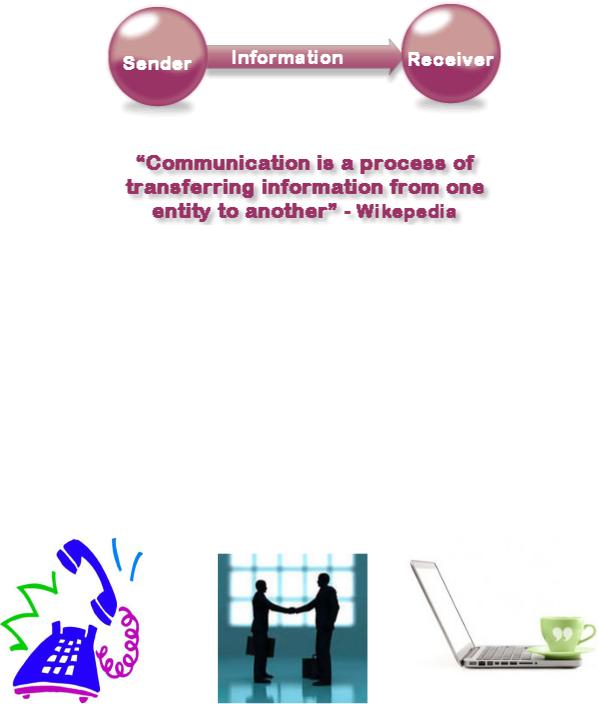
Английскй учебник
.pdf
UNIT 5. TEST YOURSELF
1. ' , ' .
English is the medium of a great deal of the world’s knowledge, ___ 1 in such areas as
science and technology. And ___2____ to knowledge is the business of education. When we
___3____ why so many nations have in recent years made English an official language or
___4____it as their chief foreign language in schools, one of the most important reasons is always
____5_____ - in the broadest sense.
Since the 1960s, English |
6 |
|
the normal medium of instruction in higher education for |
|||||||||
many countries – |
7 |
several where the language has no |
8 |
. Advances courses in the |
||||||||
Netherlands, for example, are widely |
|
9 |
in English. No African country uses its indigenous |
|||||||||
language in higher education, English being used in |
10 |
|
of cases. The English language |
|||||||||
teaching business |
11 |
|
one of the major growth industries, around the world in the past 30 |
|||||||||
years. |
|
|
|
|
|
|
|
|
|
|
|
|
especially, investigate, access, chosen, educational, has become (2), official status, including, taught, the majority.
2. .
1.
2.
3.
3. !" .
1) a Lingua Franca
2) a mothertongue speaker
3) a global village
4) layering
5) loanwords
4. .
1)
2) $ |
" |
|
|
|
3) % $ |
|
____________ |
||
4)# $ "
5),
5. .
1.Under Norman rule the official language in England was French.
2.Since there is no time like the present, he thought it was time to present the present.
3.I did not object to the object.
31
GLOSSARY
1.achieve – , !
~one’s purpose (aim) – $ (" ) ~ a status – $ (&)
2.community – !', !', !', !", !'
~rallies – )
~of opinions – $ "
~of race – &$ " bilingual ~ - international ~ – & religious ~ –
3. convention – , &, $ , !,
implicitly accepted language ~s – ( ) international ~ – & , & )
signs and ~s – |
|
|
conventional – ", |
" |
|
~ understandings – |
- |
|
~ crimes – |
( |
) " |
4.domain – !, ,
in the ~ of science –
in the ~ of literature –
~ of transportation and accommodation – # &
~ name – ( )
5.increase – 1. , , ; 2. ,
~ in number – $ ( $) ~ in size – $ ,
~ the speed – $ $
~ one’s knowledge – )$
~ of knowledge – "
~ of (in) population – ( )
6.language – ,
articulate ~ – $ $
artificial (informational, logical) ~ – " (# ", ") finger ~ – &,
literary ~ – "
living (dead) ~ – & " ( ") official ~ – # $ " semi-official ~ – # $ " spoken ~ – " , $ the English ~ – " "
written ~ – $ $, $ $
~ of science –
7. Lingua Franca – !', !' & ,
32
#
single Lingua Franca – " & mother-tongue – " ,
8. means – ( ), ! (!)
~ of communication – ( ) ( )
~ of identification – ,
~ of protection –
by means of – ,
by all means – , , " "
9. particular – 1. !, ; 2. !, !, $ ,
#, #' !
~advantages –
~case – " "
my own ~ sentiment – ( ) in ~ - ,
go into ~s – $ particularly – , , $
10. power – , ', , ',
absolute (supreme) ~ – ( ) $ economic ~ – % $
political ~ – technological ~ - $ powers – ,
delegation of ~s – " large ~s – ) leading ~s – &
11. status – !' ,
diplomatic ~ – " global ~ - "
legal ~ – "
international ~ – & "
33

MODULE 2
COMMUNICATION
UNIT 1. WHAT IS COMMUNICATION?
Sender is a person who sends information. Receiver is a person who gets information.
Information can be a lot of different things depending on the context. People sometimes view information and the medium to transfer it as one and the same. They aren't. Let's distinguish between the information being sent that the medium used to send it.
The information can be: words, gestures, drawings, paintings, songs, music.
The means can be: speeches, emails, blogs, forums, text messages, voice messages, poems, essays, books, newspapers, ads, articles, and practically anything you can speak through, write on or draw on.
Effective Communication is a process where a message is received and understood by the receiver in the manner that the sender intended it to be.
1. , . , -
. ( ' .
! |
|
|
34

D
1.
A:Hello. I'm Mia Conners.
B:Hi, Mia. I'm David Sinclair, and this is my partner Gina Evans. (Hold out a hand to shake)
A:Nice to meet you Mr. Sinclair and Ms. Evans. Thank you for taking the time to meet with me today.
B:It's our pleasure. And please, call us David and Gina. Can I take your coat?
A:Thank you.
B:No problem. Please take a seat and we'll be right with you. I just have to make a quick phone call.
……………
2. |
|
Leslie: |
Hello. |
Cameron: Hi, is this Leslie? |
|
Leslie: |
Yes. Who’s this? |
Cameron: It's Cameron here. Is Maria in? |
|
Leslie: |
No, she just stepped out for a moment. Can I take a message? |
Cameron: Yes, thanks. Please ask her to meet me at the Capitol 4 movie theatre at 7 pm |
|
|
tonight. |
Leslie: |
Sure. Just let me write that down. Oh, Cameron, could you hold for a second? I have |
|
to take another call. |
Cameron: |
No problem. |
3. |
|
Dear Andy:
How have you been? Your mother and I are fine. We miss you. Please sign off your computer and come downstairs for something to eat.
Love,
Dad
2. * !' ! ( ? %
, #' $ , ! $ , -
.
Speaking, writing, listening, reading, a formal vocabulary, a slang, an ear, full sentences, a hand, punctuation marks, a mouth, facial expression, a tone of voice, correct grammar, sentences, sentences and paragraphs, oral communication, an eye, written communication, to see, to write, to read, to listen.
35

ORAL COMMUNICATION |
WRITTEN COMMUNICATION |
|
|
1. |
1. |
|
|
2. |
2. |
|
|
3. |
3. |
|
|
4. |
4. |
|
|
5. |
5. |
|
|
6. |
6. |
|
|
3. + , ! -
$ .
4. % ! . , ( -
!: , , .
5. # ! !', , (
, , , !" . ,
.
Models: |
|
|
I think it’s absolutely true because … - |
6 ! # |
, … |
I can’t agree with this opinion because … – 6 |
, |
|
|
…. |
|
To my mind – |
- … |
|
1."Two monologues do not make a dialogue."
2."The most important thing in communication is to hear what isn't being said."
3."When the eyes say one thing, and the tongue another, a practiced man relies on the language of the first."
4.“There cannot be greater rudeness than to interrupt another in the current of his discourse."
5."From listening comes wisdom and from speaking, repentance." (Proverb)
6..
1.Can we live without communication?
2.How can we communicate with each other?
3.In what cases do you feel the need in contacts?
4.What means of communication do you prefer to use? Why?
5.Do you like to communicate with strangers? Why?
6.Have you ever had contacts with foreigners?
7.What language do you usually speak to foreigners?
8.What rules of communication do you know?
9.What rules of communication do you follow?
10.Are rules of communication different in different countries? (Give your examples).
36

UNIT 2. WHAT IS INTERPERSONAL COMMUNICATION?
1. .
TEXT
INTERPERSONAL COMMUNICATION
Interpersonal communication is usually defined by communication scholars in numerous ways, usually describing participants who are dependent upon one another. It can involve one on one conversations or individuals interacting with many people within a society. It helps us understand how and why people behave and communicate in different ways to construct and negotiate a social reality. While interpersonal communication can be defined as its own area of study, it also occurs within other contexts like groups and organizations. Interpersonal communication is the process that we use to communicate our ideas, thoughts, and feelings to another person. Our interpersonal communication skills are learned behaviours that can be improved through knowledge, practice, feedback, and reflection.
Interpersonal communication includes message sending and message reception between two or more individuals. This can include all aspects of communication such as listening, persuading, asserting, non-verbal communication, and more. A primary concept of interpersonal communication looks at communicative acts when there are few individuals involved unlike areas of communication such as group interaction, where there may be a large number of individuals involved in a communicative act.
Individuals also communicate on different interpersonal levels depending on who they are engaging in communication with. For example, if an individual is communicating with a family member, that communication will more than likely differ from the type of communication used when engaged in a communicative act with a friend or a significant person.
Overall, interpersonal communication can be conducted using both direct and indirect mediums of communication such as face-to-face interaction, as well as computer-mediated- communication. Successful interpersonal communication assumes that both the message senders and the message receivers will interpret and understand the messages being sent on a level of understood meanings and implications.
2. ! .
1. interpersonal communication |
a. $ |
|
|
2. to interact with people |
b. |
) |
|
|
|
|
|
3. to communicate in different ways |
c. $ |
" |
|
4. to occur within other contexts |
d. & |
|
|
5. non-verbal communication |
e. |
|
|
|
|
|
|
6. feedback and reflection |
f. " $ $ |
||
|
|
||
7. to be engaged in a communicative act |
g. |
||
8. direct and indirect mediums of communi- |
h. $ |
|
|
cation |
|
|
|
9. to understand meanings and implications |
i. $ |
|
|
10. message sending and message receiving |
j. $ |
||
|
|
|
|
37

3. ( #' ,
# # .
Models: a) I fully agree with the statement.
b)I am afraid, I can’t agree with it.
1.Interpersonal communication can occur within different contexts.
2.Interpersonal communication is the process that we use to communicate our ideas, and feelings.
3.Interpersonal communication skills can’t be improved through knowledge and practice.
4.Non-verbal communication as well as persuading is included into communication.
5.Individuals communicate on different interpersonal levels.
6.Interpersonal communication can be conducted using both face-to-face interaction and computer- mediated-communication.
7.Message receivers can not as a rule interpret and understand the messages being sent.
4..
a. feedback, b. medium, c. knowledge, d. scholar, e. context, f. society, g. skill
1.Familiarity, awareness, or understanding gained through experience or study. ____________
2.A group of humans broadly distinguished from other groups by mutual interests, participation in characteristic relationships, shared institutions, and a common culture. ______________
3.The response within a system to an action or process. _____________
4.A developed talent or ability. _____________
5.Something, such as an intermediate course of action, which occupies a position or represents a condition midway between extremes. ___________
6.The circumstances in which an event occurs. ____________
7.A learned person. ___________
5. . ! .
.
Communication is the transmission of information such as thoughts and ( ). The basic forms of communication are by ( ) and by ( ). The reduction of communication to ( ) was a fundamental step in the evolution of ( ) for, in addition to being useful in situations where ( ) is not possible; ( ) permits the preservation of communications, or records, from the past. It marks the beginning of recorded history. Whereas the rise of book publishing and journalism facilitated the widespread dissemination of information, the invention of the ( , , ) made possible instantaneous communication over long distances.
6. .
1.3 & " " –, - - .
2.4 - .
3.# " & ," .
38
4. |
, , |
|
& $ - $ - . |
||
5. |
$ , $, $ % . |
|
7. |
( ! ', ( & #, , - |
|
! # . |
||
Wife |
If you don't hurry, we'll be late for the show. |
|
Husband |
There's plenty of time. ______1______ (to complain) |
|
Wife |
Plenty of time? The show starts in twenty minutes. |
|
Husband It takes only ten minutes to get there. We can leave now. |
||
Wife |
______2______ (to express relief) |
|
Husband ______3______ (to advise) It's bad for health to be so anxious about everything.
1.To complain
A Why are you in a hurry? B It's only six o'clock.
C I won't take long.
D You are always so impatient.
2.To express relief
AGood.
BThat's better.
CThank goodness for that! D It's about time!
3.To advise
A Slow down. B Don't worry.
CYou must be patient.
DYou need to relax a bit more.
Valerie Why did you give money to that beggar?
Vicky ______1______ (to explain) I can't walk past, ignoring him.
Valerie You are just encouraging him to be lazy. It is a bad habit. Vicky He looks old and sickly.
Valerie ______2______ (to agree) But there are organizations to help people like him. Vicky And what are they doing to help him?
Valerie All right. ______3______ (to pacify)
1.To explain
A Why shouldn't I? B He's always there. C I dislike beggars.
D I feel sorry for him.
2.To agree
39
A All right.
B Yes, he does.
C I believe you.
DYou may be right.
3.To pacify
A Let's go. B Forget it.
C Do what you like.
D Let's not argue about it.
Aileen |
Doctor, I've had this rash on my skin for over a week. It has not cleared up. |
|
|
Doctor |
______1______ (to sympathize) Let me look at it. |
Aileen |
______2______ (to express anxiety) What could have caused it? |
Doctor |
Some types of food can cause a mild allergic reaction or it could have been caused by |
|
some chemical. Have you used a different brand of cream or lotion on your skin lately? |
Aileen |
Yes, I have. I tried a new face cream last week. |
|
|
Doctor |
I'll prescribe some medicine. If the rash doesn't clear up, come and see me again. |
|
_______3_______ (to comfort) |
Aileen |
Thank you. |
1.To sympathize
A I'm sorry.
B I'm sorry to hear that. C Don't worry about it.
D It's going to be all right.
2.To express anxiety
A I'm rather worried. B It's quite itchy.
C Can you cure it?
DWill it become worse?
3.To comfort
A Cheer up. B Cheerio! C Good luck.
D Take it easy.
8.+ , , ( !'.
40
